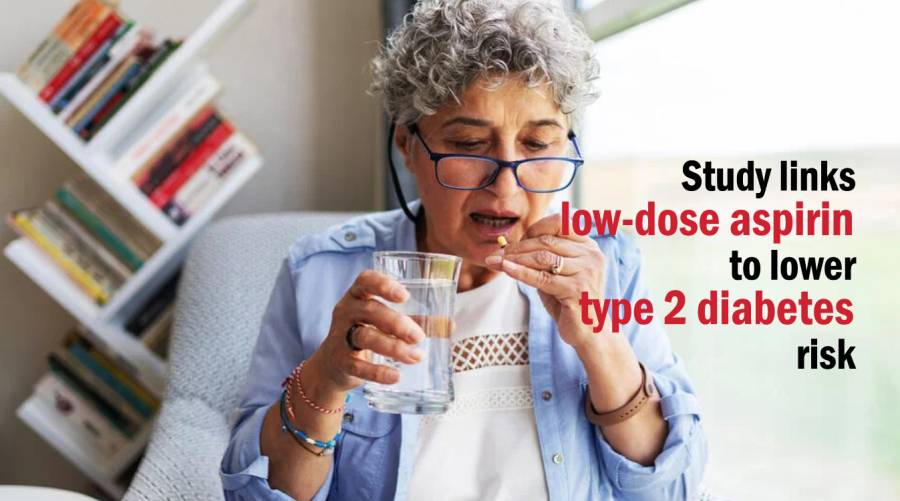
A recent study has highlighted the potential advantages of low-dose aspirin in mitigating the risk of type 2 diabetes in individuals aged 65 and above, also suggesting that the use of aspirin heightened the risk of significant hemorrhage in older adults, without any corresponding reduction in the incidence of cardiovascular disease.
The outcomes of this study are slated for presentation at the forthcoming Annual Meeting of the European Association for the Study of Diabetes (EASD) in Hamburg, Germany, scheduled for early October.
This insightful examination serves as a sequel to the ASPREE trial, a double-blind, placebo-controlled investigation of aspirin, which originally disclosed its primary results in the New England Journal of Medicine back in 2018.
The study conducted under the guidance of Prof Sophia Zoungas from the School of Public Health and Preventive Medicine at Monash University in Melbourne, Australia, that a daily low dosage of aspirin (100 mg) is linked to a 15 percent reduced likelihood of developing type 2 diabetes in individuals aged 65 and older.
The researchers behind this study contend that these findings necessitate further exploration into the potential of anti-inflammatory agents such as aspirin for the prevention of diabetes. Nevertheless, they underscore that the impact of aspirin on the onset of type 2 diabetes in older adults remains uncertain.
The study recruited individuals aged 65 and above who were devoid of cardiovascular disease, debilitating physical impairments, and dementia. These participants were randomly assigned to receive either 100mg of daily aspirin or a placebo.
Incident diabetes was defined as self-reported diabetes, the commencement of glucose-lowering medications, or a fasting plasma glucose (FPG) level of 7.0 mmol/L or higher during annual follow-up visits.
The analysis showed that aspirin treatment curtailed the occurrence of diabetes and hindered increase in fasting plasma glucose over time among initially healthy older adults.
Commenting on the findings, Prof Zoungas remarked that considering the high prevalence of type 2 diabetes among the elderly, further investigation is warranted regarding the potential of anti-inflammatory agents like aspirin in preventing type 2 diabetes or enhancing glucose levels. She underscored, however, that these fresh findings, though intriguing, do not alter the prevailing clinical advice regarding the use of aspirin in older individuals at this juncture.
The earlier-published trial findings from ASPREE in 2018 had demonstrated that aspirin did not extend healthy, self-reliant living but was associated with a significantly heightened risk of bleeding, predominantly in the gastrointestinal tract. Consequently, major prescribing guidelines now advocate for older adults to take daily aspirin solely when a specific medical necessity exists, such as following a heart attack.


